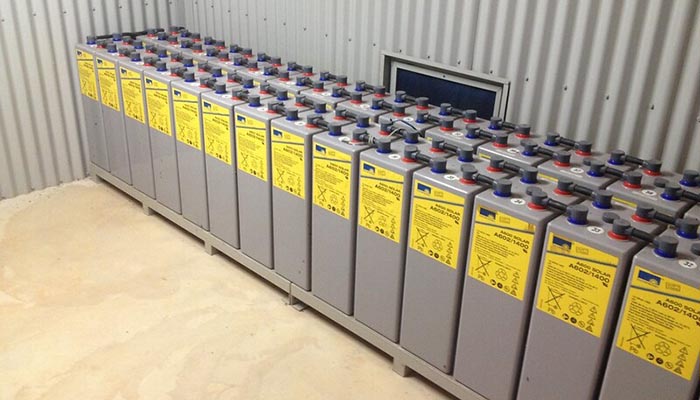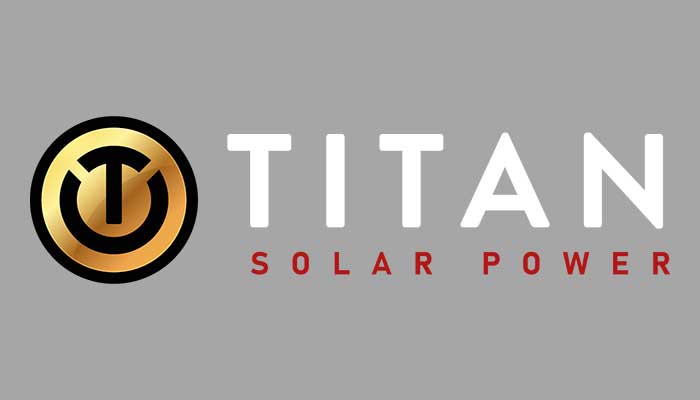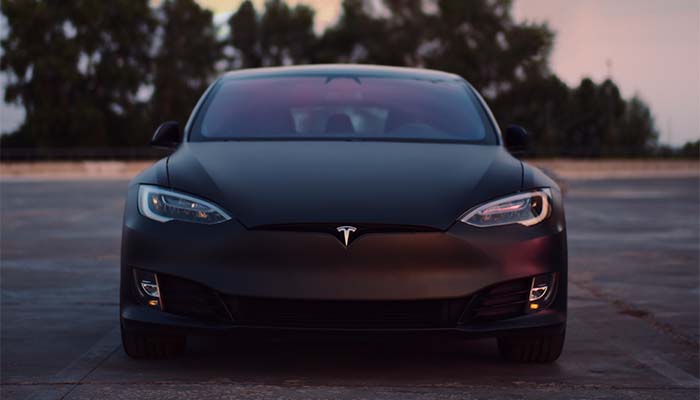
Updated January 13, 2022
A backup power source is crucial during periods of inclement weather and power outages, as these outages can potentially last for hours or sometimes days. Power outages can be inconvenient at best and are potentially deadly in extreme cold and hot conditions at worst.
More and more people are harnessing the sun’s energy for electricity. Moreover, solar energy systems extend beyond providing electricity to residential homes and businesses; solar batteries are a viable backup power source.
There are two prime candidates for backup power sources: solar batteries and fossil fuel generators. Continue reading on to learn the differences between the two and how to choose the one that best suits your needs.
Solar Battery vs. Generator
The type of energy your home utilizes and costs are the foremost factors that will lead a homeowner to choose one or the other. While they both offer backup power in the unfortunate instance of an outage, there are caveats to each.
Solar Battery
Solar batteries are particularly useful for homes already equipped with a solar energy system. Solar batteries draw excess energy from the solar panels, and this stored excess energy is stored in the battery for use at a later time.
Like homes that use traditional electricity systems, a home with a solar energy system will also lose power during an outage. This is because electricity is delivered through the grid. This is also why a solar energy system pairs well with a solar battery.
During an outage, the solar battery will begin powering your home. There will be no interruption of power in your home. A solar backup is customizable in size. The battery backup can power just enough for essential loads or large enough to power your whole home. Read about the life expectancy of a solar battery here.
Other Use for Solar Batteries
Solar batteries are useful as backups beyond power outages. For example, if the homeowner has time-of-use programs, the homeowner can draw power from the solar backup when electricity rates are high.
Solar Battery Costs
There is one drawback to solar batteries: they are quite costly. Not only is there the cost for the actual solar battlers, but you will also need to pay for the installation. As a result, you can expect to pay anywhere from $10,000 to $20,000 upfront for a battery backup system.
Overall, there are benefits and drawbacks to solar batteries. Each will be highlighted below.
Solar Battery Pros
- Quiet operation
- When combined with solar panels, it operates on renewable energy
- Low maintenance
- Seamless operation when the grid is down
Solar Battery Cons
- Higher upfront cost than a generator
- Limited capacity for power
- Slow recharging
Generator
When many people think of backup power, they think of backup generators. Generators create energy using fossil fuels: propane, natural gas, gasoline, or diesel fuel.
Backup generators are installed outside of the home. They should be at least 20 feet away from the home, and you must point the exhaust away from the home and any neighboring homes.
Generators should never be used in an enclosed space, including a home or garage. Operating a generator inside a structure risks causing carbon monoxide poisoning.
Generator Types
There are four primary backup generators available. If you choose a generator as your backup power source, you will also need to select the type that will work best for your situation and budget.
- Portable Generator. You can move these generators on wheels. Their wattage can range from 3,000 to 8,5000. Some of the smallest portable generators are intended for camping use only.
- Inverter Generator. An inverter generator is a portable generator and is more expensive than the conventional portable generator. They vary between models because they adjust power based on demands. Thus, they are quieter and have lower emissions.
- Standby Generator. Standby generators can deliver as much as 20,000 watts. They can detect a power outage and turn themselves on instantly. Similarly, they can detect when power is restored and shut off. Standby generators also run diagnostic checks to ensure the system can function properly.
- Backup Generator. This type of generator is similar to the standby generator. The key difference is that it requires manual start-up and stopping.
Generator Pros
- More affordable
- Ability to connect to existing gas line
- Provides steady fuel supply
- Provides power 24/7
Generator Cons
- Noisy
- Large carbon footprint
- Cost of fuel
- Maintenance needed
Generator Costs
At the least, a small generator with limited capacity can cost as little as $400. On the other end of the spectrum, a whole home standby generator can cost as much as $10,00.
While generators have lower upfront costs than solar batteries, they may require fuel to operate, which will be a long-term, ongoing cost that you must consider. Furthermore, unless your generator is connected to a natural gas line, you will need to provide fuel for your generator to run.
Generator Fuels
You can use four kinds of fuels in generators.
- Gasoline: A 5-kilowatt generator would burn about three-quarters of fuel an hour. This is generally the cheapest fuel.
- Diesel: An 8-kilowatt generator burns approximately half a gallon of fuel per hour. This fuel type is slightly more expensive than gasoline.
- Natural gas: Natural gas is the next most expensive fuel type.
- Propane gas: Propane is the most expensive fuel. A 7-kilowatt generator would burn around 1.42 gallons of fuel an hour.
Generator Maintenance
A generator can provide up to 30,000 hours of power with proper maintenance, but keeping up on that maintenance is key. Weekly self-tests are needed to keep your generator in functioning condition.
Which Is Best
There are several reasons why you may opt for a backup generator. A backup generator may be the easiest solution if the homeowner does not have or plan to install solar panels on their home. If there is an existing natural gas line, a backup generator may be a natural solution. A backup generator is also a solid choice if you only want emergency power.
On the other hand, you may choose a solar battery for other reasons. For example, if the homeowner has a solar energy system, the next logical progression maybe integrating a solar battery for backup power. In addition, it is a good option if you want to power your home 24/7.
Choosing The Solution That’s Right For You
Power outages are unpredictable—therefore, it is important to keep your house running during a power outage. Solar batteries and generators are both useful as backup energy sources. Being properly prepared in these situations is essential.
However, there are specific reasons that a homeowner might select one over the other, or use both in conjunction. Both serve their own purposes and fill their own roles, respectively.



